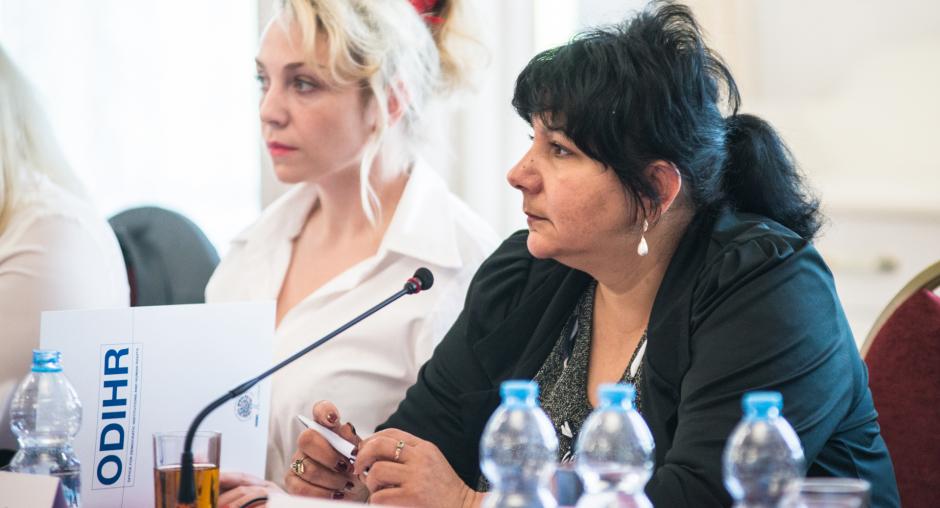Ensuring access to birth registration, internal passports for Roma in Ukraine key to improving their lives, say participants in OSCE/ODIHR roundtable discussion

Defining concrete steps to ensure access to identity documents for vulnerable Roma in Ukraine was the focus of a roundtable event organized by the OSCE Office for Democratic Institutions and Human Rights (ODIHR), in co-operation with the State Migration Service of Ukraine, on 30 and 31 May 2017 in Odesa.
Some 40 participants from the national and regional authorities, Roma and non-Roma civil society organizations and international organizations explored solutions to problems Roma men and women face in accessing identity documents.
"The lack of birth certificates and internal passports perpetuates the marginalization of undocumented Roma in Ukraine, as it prevents them from exercising their fundamental, social and political rights," said Mirjam Karoly, Chief of ODIHR’s Contact Point for Roma and Sinti Issues. “Overcoming the obstacles in this area is, therefore, the first step towards improving their lives.”
“It is in the State’s interest to ensure that its entire population has identity documents,” said Dina Pimahova, Deputy Chair of the State Migration Service. “The ongoing reform on identity management in Ukraine provides a timely opportunity for this.”
Aksana Filipishyna of the office of the Ukrainian Parliament Commissioner for Human Rights underlined that around 20 per cent of Roma in Ukraine still do not have identity documents. “For many of them, a uniform practice in applying administrative procedures in Ukraine would already be an important step forward,” she added.
As part of the event, participants reviewed and discussed the preliminary findings of a baseline study commissioned by ODIHR on the scope and causes of the challenges related to the lack of identity documents among Roma in Ukraine. They also highlighted the need to increase the accessibility of free legal aid for members of Roma communities and to step up efforts to reach out to vulnerable groups by conducting awareness-raising and information campaigns in close collaboration with those communities.
"More joint efforts are required on the part of different authorities to implement, in co-operation with civil society organizations, more flexible processes to overcome the cumbersome administrative procedures Roma in vulnerable situations face in obtaining identity documents,” said Volodymyr Kondur, Director of the NGO Roma Human Rights Centre.
The roundtable event was held as part of the ODIHR project on Roma inclusion in Ukraine, in line with the Action Plan on Improving the Situation of Roma and Sinti within the OSCE Area and the findings of ODIHR’s Situation Assessment Report on Roma in Ukraine and the Impact of the Current Crisis.
